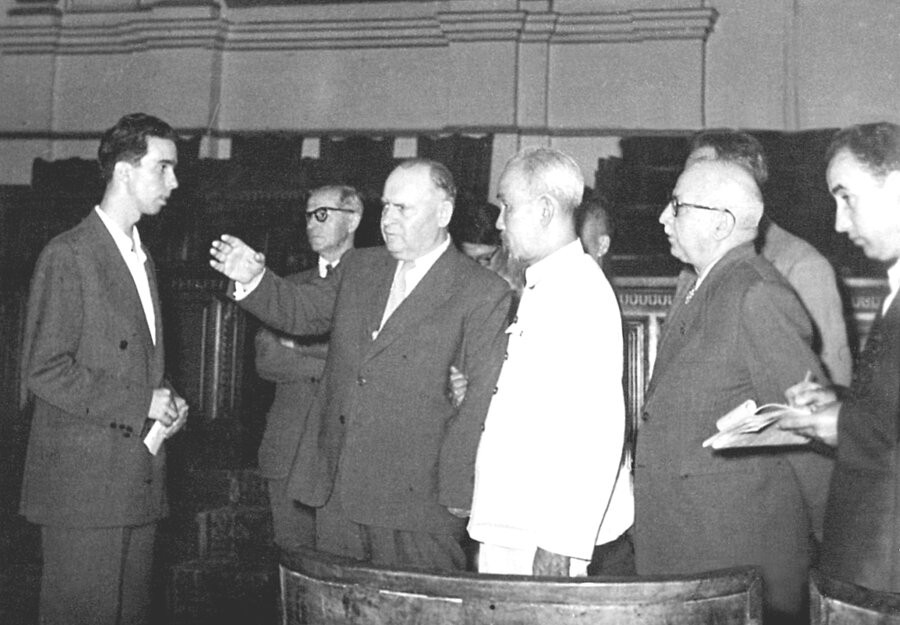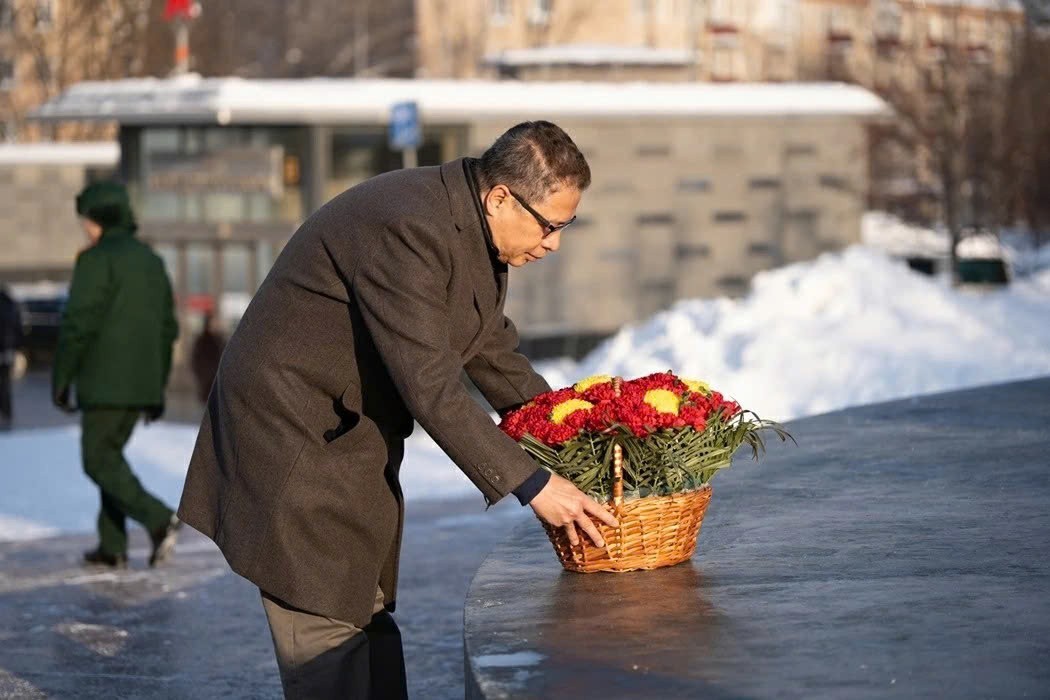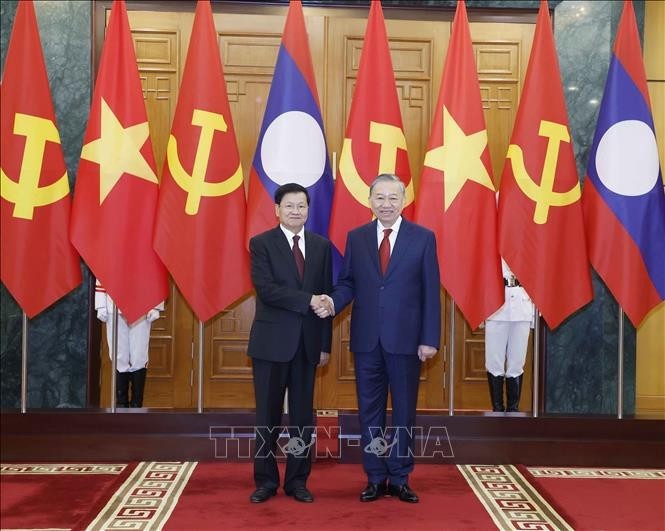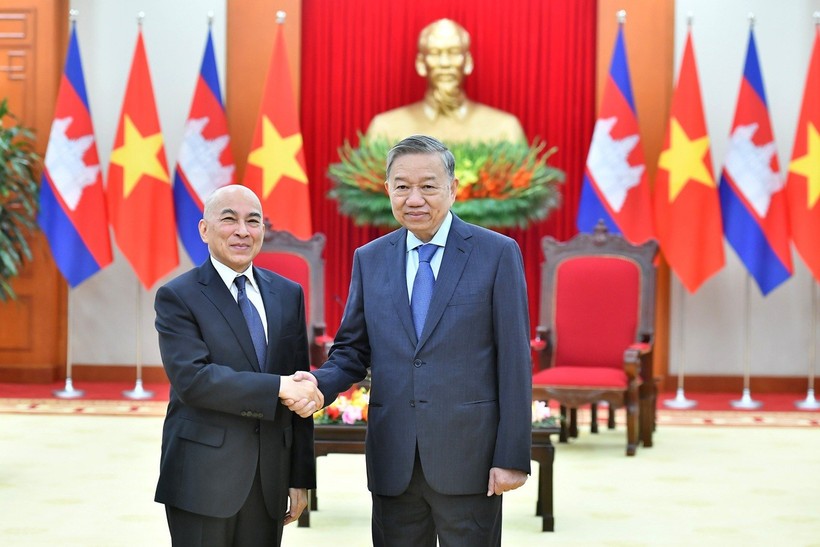Gandhi’s Legacy In Vietnam - India Friendship
| Seminar Promotes Vietnam - India Friendship | |
| VUFO President Welcomes General Secretary of Communist Party of India |
On October 1 in Ho Chi Minh City, the Consulate General of India held a ceremony marking the 156th birth anniversary of Mahatma Gandhi, the ‘Father of the Nation’ of India, with the attendance of city leaders, diplomatic representatives, scholars, and members of the Indian community.
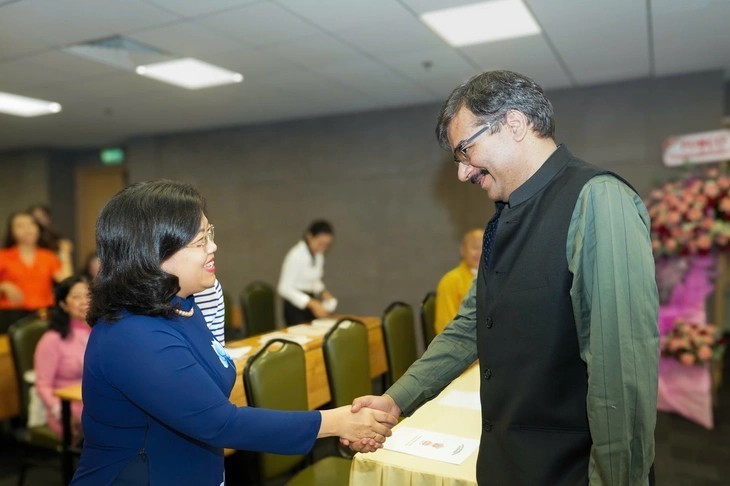 |
| Nguyen Truong Nhat Phuong, Vice Chairwoman of the Ho Chi Minh City People’s Council (left), shakes hands with Indian Consul General in Ho Chi Minh City Vipra Pandey at a ceremony marking the 156th birth anniversary of Mahatma Gandhi. (Photo: Tuoi Tre) |
Speaking at the ceremony, Nguyen Truong Nhat Phuong, Vice Chairwoman of the Ho Chi Minh City People’s Council, expressed deep respect for Mahatma Gandhi and highlighted the parallels between him and President Ho Chi Minh. Both devoted their lives to national liberation, becoming “fathers of the nation” in the hearts of their people, leaving an influence that extended beyond the borders of India and Vietnam, and inspiring independence movements across the world.
She said, “Though the course of history never allowed the two great leaders of Vietnam and India to meet in person, they shared a remarkable convergence of ideals. In 1958, a decade after Mahatma Gandhi’s passing, President Ho Chi Minh visited his tomb and acknowledged that Gandhi’s way of life had been a source of inspiration. He wrote that Mahatma Gandhi was a man who "upheld patriotic virtue, lived with austerity and perseverance, and devoted his entire life to his country, his people, and to peace."
The Vice Chairwoman of the Ho Chi Minh City People’s Council affirmed that the Vietnam–India friendship, nurtured by the two great leaders, continues to grow stronger and more comprehensive in all fields. Ho Chi Minh City is now home to more than 6,000 Indian citizens, whose community has made significant contributions to the city’s socio-economic life.
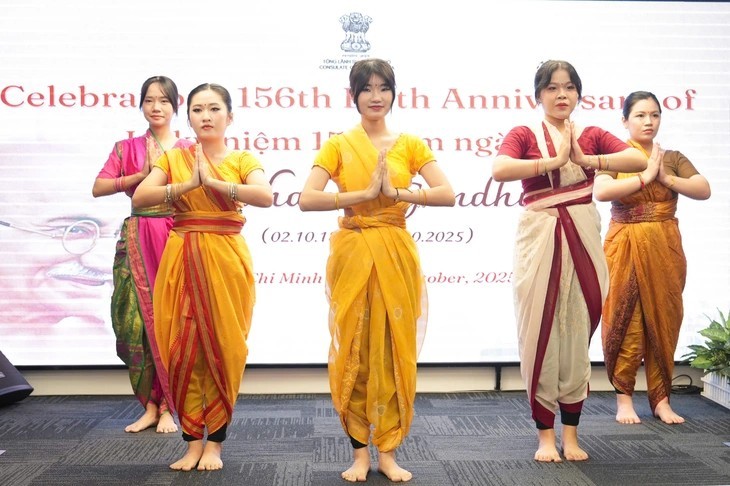 |
| Students from the Faculty of Oriental Studies, University of Social Sciences and Humanities, perform at the ceremony. (Photo: Tuoi Tre) |
“Ho Chi Minh City always wishes to further promote Vietnam-India relations, as well as partnerships between the city and Indian counterparts, thereby bringing India closer to the people of the city,” Nguyen Truong Nhat Phuong said.
Speaking at the event, Associate Professor Dr. Phan Thi Thu Hien highlighted the resonance between the ideals of Mahatma Gandhi and President Ho Chi Minh, reflected in their timeless declarations: “Freedom is the breath of life” and “Nothing is more precious than independence and freedom.” According to her, Gandhi’s love for humanity and his simple way of life evoke the image of President Ho Chi Minh, a leader who remained close to the people and devoted his entire heart to the nation.
From an economic perspective, Indian Consul General in Ho Chi Minh City Vipra Pandey stressed that Mahatma Gandhi was not only a revolutionary leader but also a thinker whose influence on commerce and social development endures to this day. Gandhi believed that business must serve society, not dominate it. He upheld the principle of Swadeshi - the spirit of self-reliance - not as a call for isolation but as a vision for balanced trade: cooperation without dependence, exchange without exploitation, and development rooted in the dignity of labor.
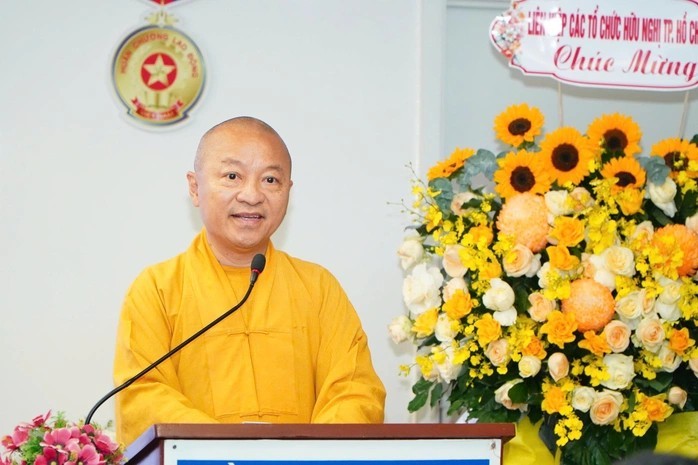 |
| Most Venerable Dr. Thich Nhat Tu, Head of the Committee for International Buddhist Affairs under the Vietnam Buddhist Sangha (Photo: Tuoi Tre) |
From an economic perspective, Indian Consul General in Ho Chi Minh City Vipra Pandey stressed that Mahatma Gandhi was not only a revolutionary leader but also a thinker whose influence on commerce and social development endures to this day. Gandhi believed that business must serve society, not dominate it. He upheld the principle of Swadeshi - the spirit of self-reliance - not as a call for isolation but as a vision for balanced trade: cooperation without dependence, exchange without exploitation, and development rooted in the dignity of labor.
In the context of globalization, Mahatma Gandhi’s reminder that “The future depends on what we do in the present” remains as relevant as ever - especially for India and Vietnam, two nations with ancient civilizations and increasingly close economic ties.
At the ceremony, Most Venerable Dr. Thich Nhat Tu, Head of the Committee for International Buddhist Affairs under the Vietnam Buddhist Sangha, shared seven invaluable lessons from Mahatma Gandhi: steadfastness to truth, non-violence, self-mastery, community welfare, responsibility toward the Earth, religious pluralism, and humble leadership.
According to him, these are not merely legacies of the past but guiding principles for the present and future, for governments, social movements, businesses, and individuals alike, in the pursuit of a virtuous and sustainable life.
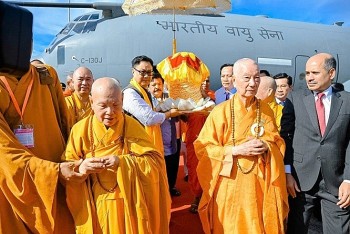 | Spiritual Values Strengthen Vietnam - India Ties On May 2, as part of his journey accompanying the sacred relics of Buddha Shakyamuni to Vietnam for the 2025 United Nations Vesak Festival, ... |
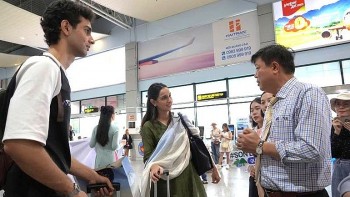 | Quang Tri Welcomes Bollywood Film Crew Shoot Scenes At Natural Caves On July 30, the Department of Culture, Sports, and Tourism of Quang Tri province held a welcoming ceremony at Dong Hoi Airport to greet and ... |
Recommended
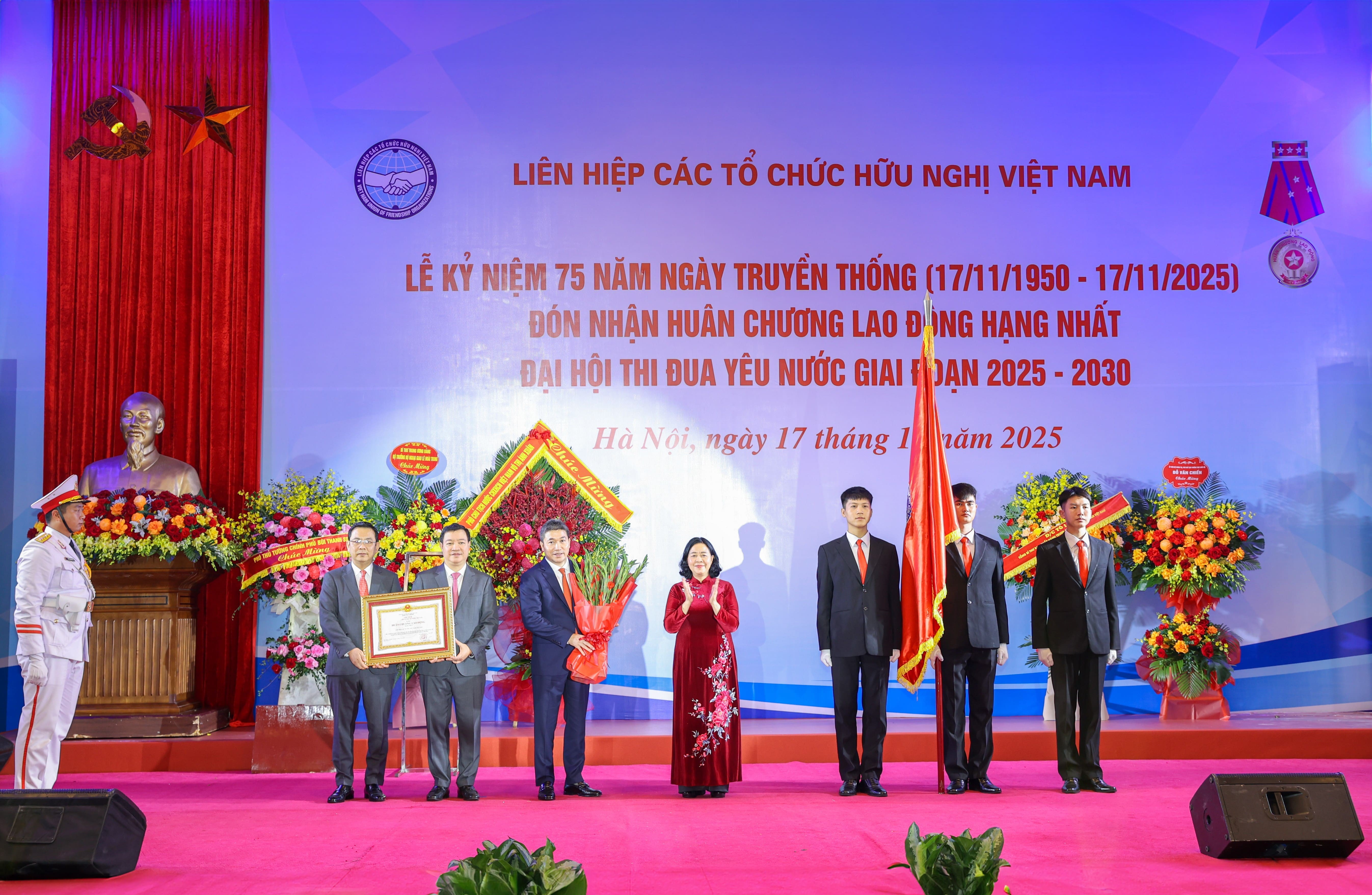 Friendship
Friendship
People-to-People Diplomacy: Change to Reach Further
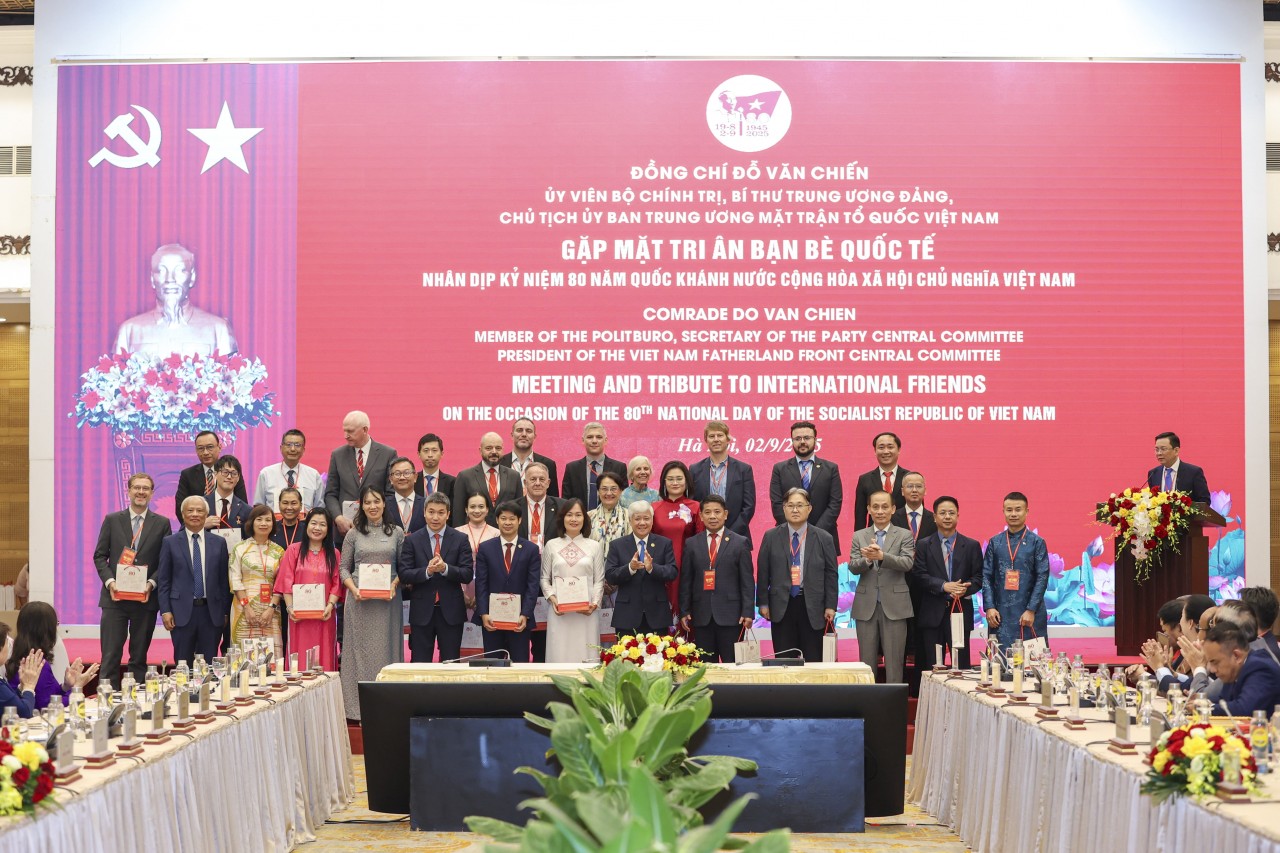 Focus
Focus
Outstanding Highlights of Viet Nam’s People-to-People Diplomacy in 2025
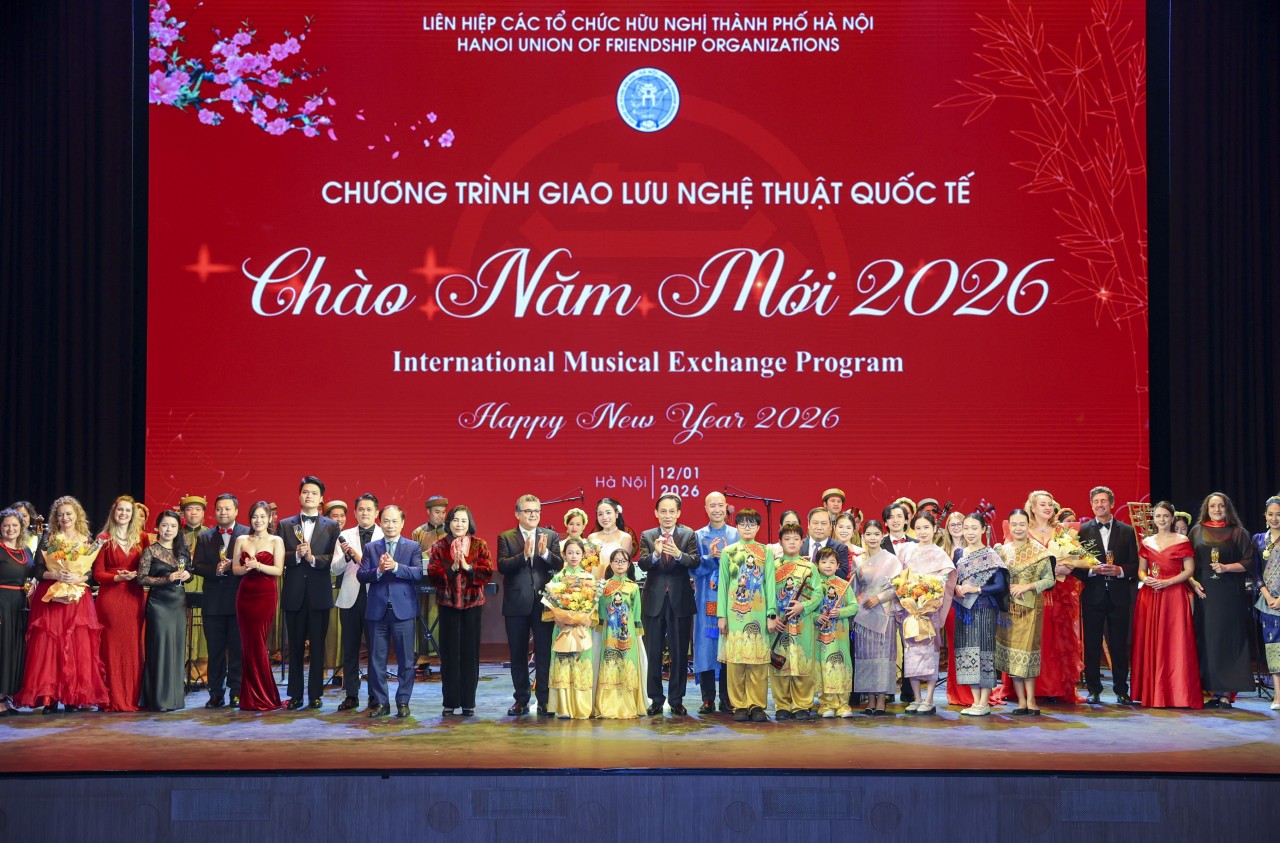 Friendship
Friendship
Hanoi Union of Friendship Organizations: Spreading Values of Peace in Heart of Capital
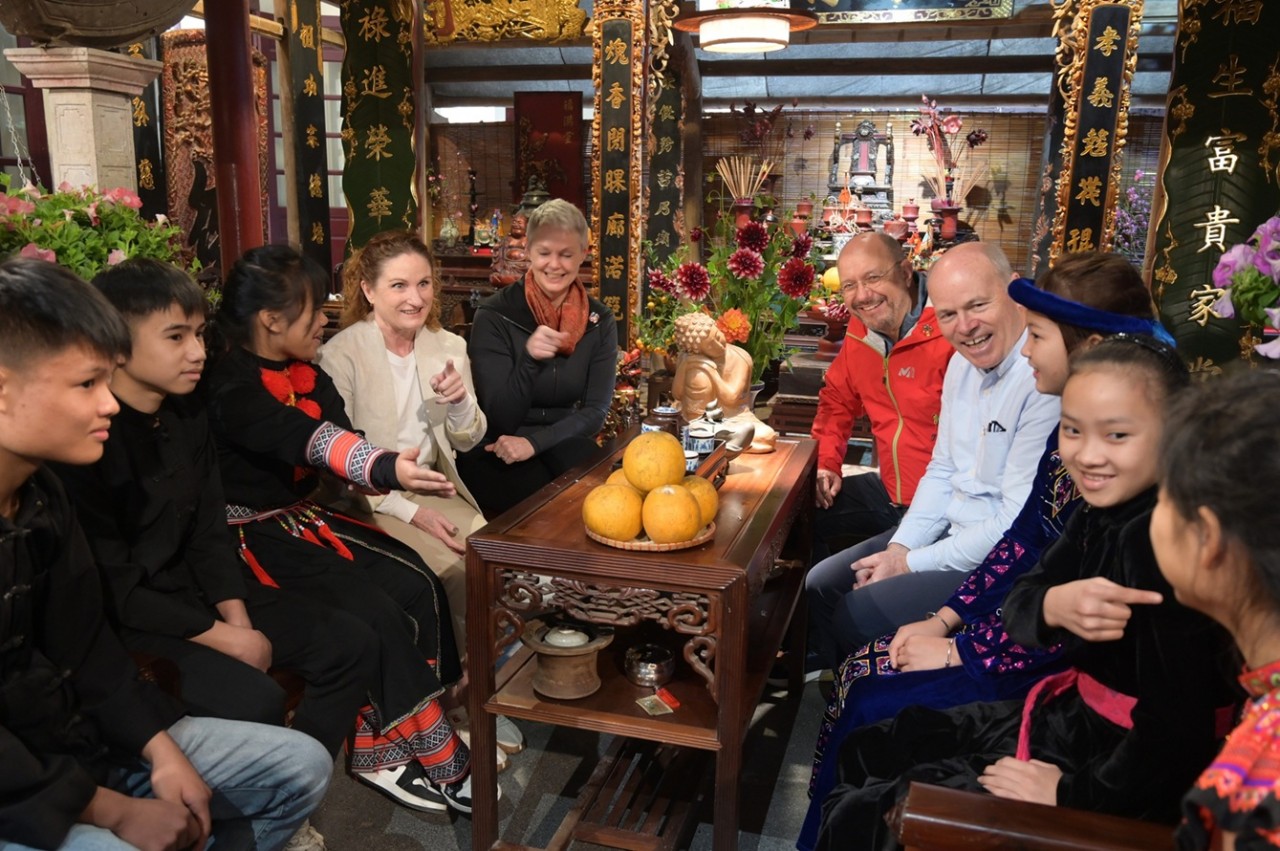 Friendship
Friendship
G4 Ambassadors to Vietnam Extend Greetings for the New Year of the Horse
Popular article
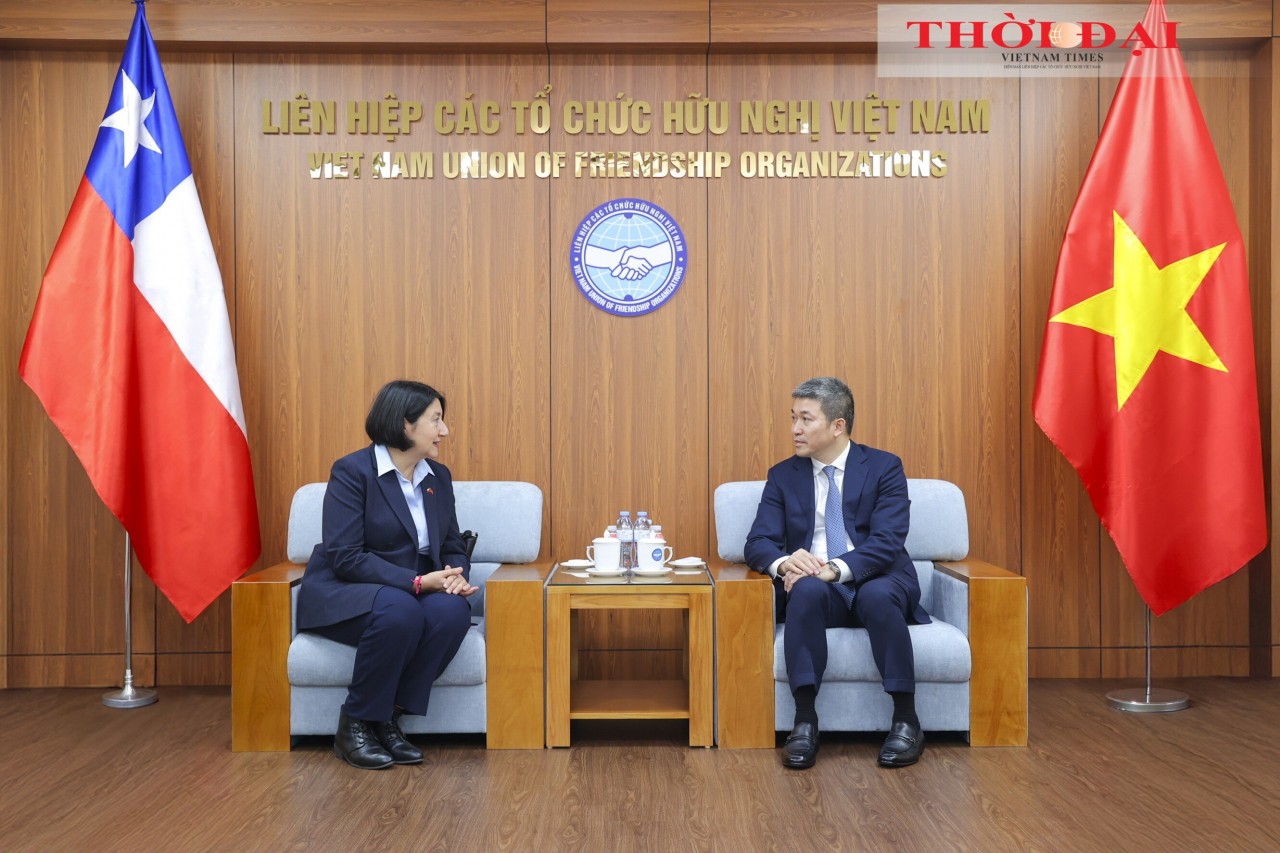 Friendship
Friendship
Promoting People-to-People Cooperation on the Occasion of the 55th Anniversary of Vietnam-Chile Relations
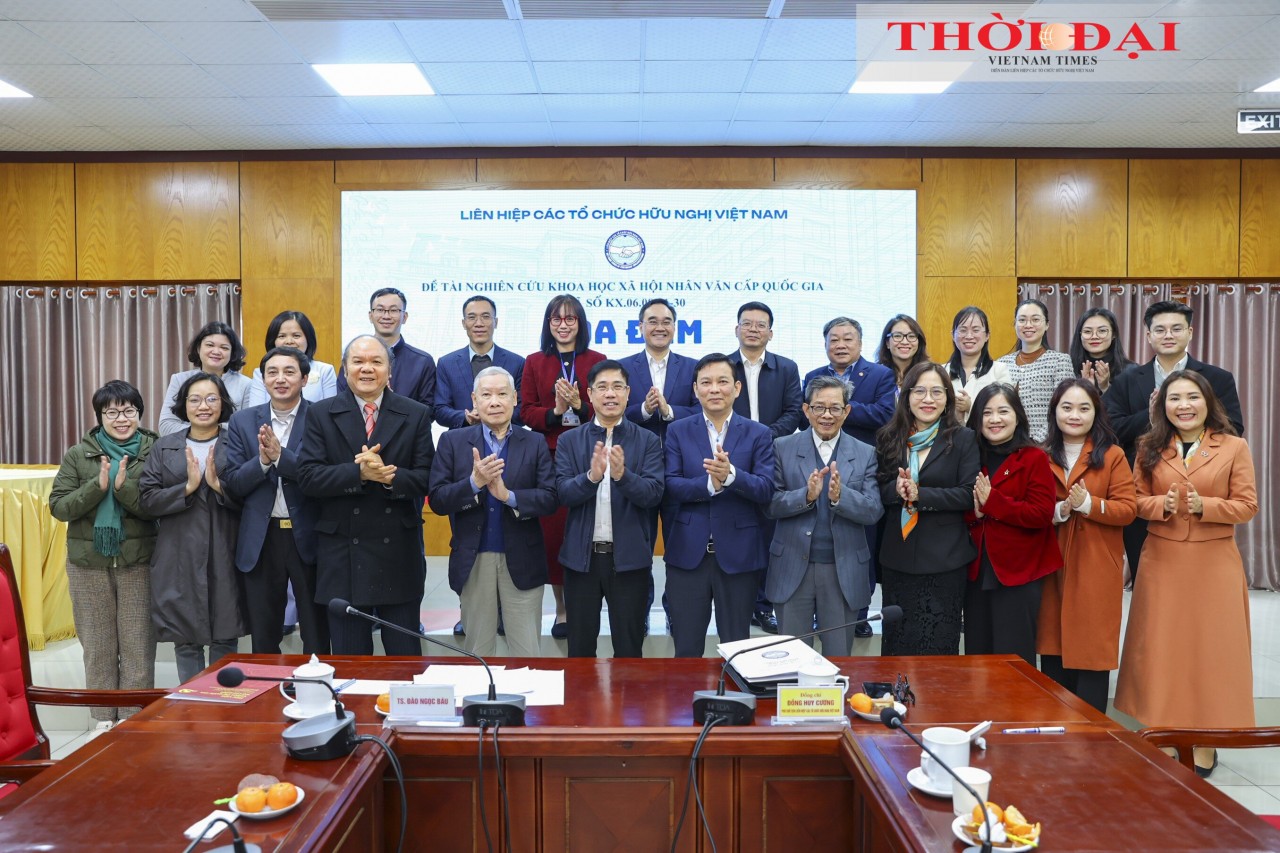 Focus
Focus
Seminar on “The Scientific Foundations of People-to-People Diplomacy in the World”
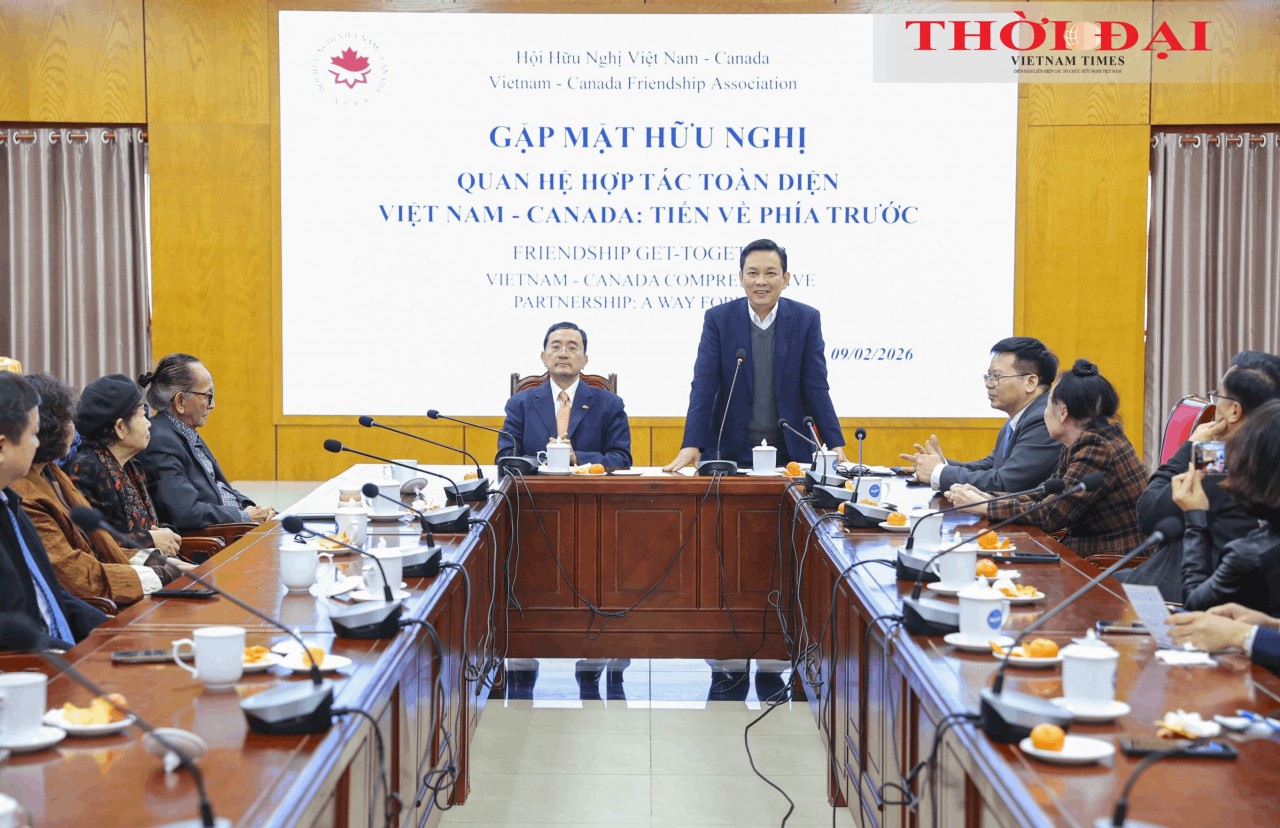 Friendship
Friendship
Vietnam-Canada Friendship Meeting: Advancing Comprehensive Cooperation through People-to-People Diplomacy
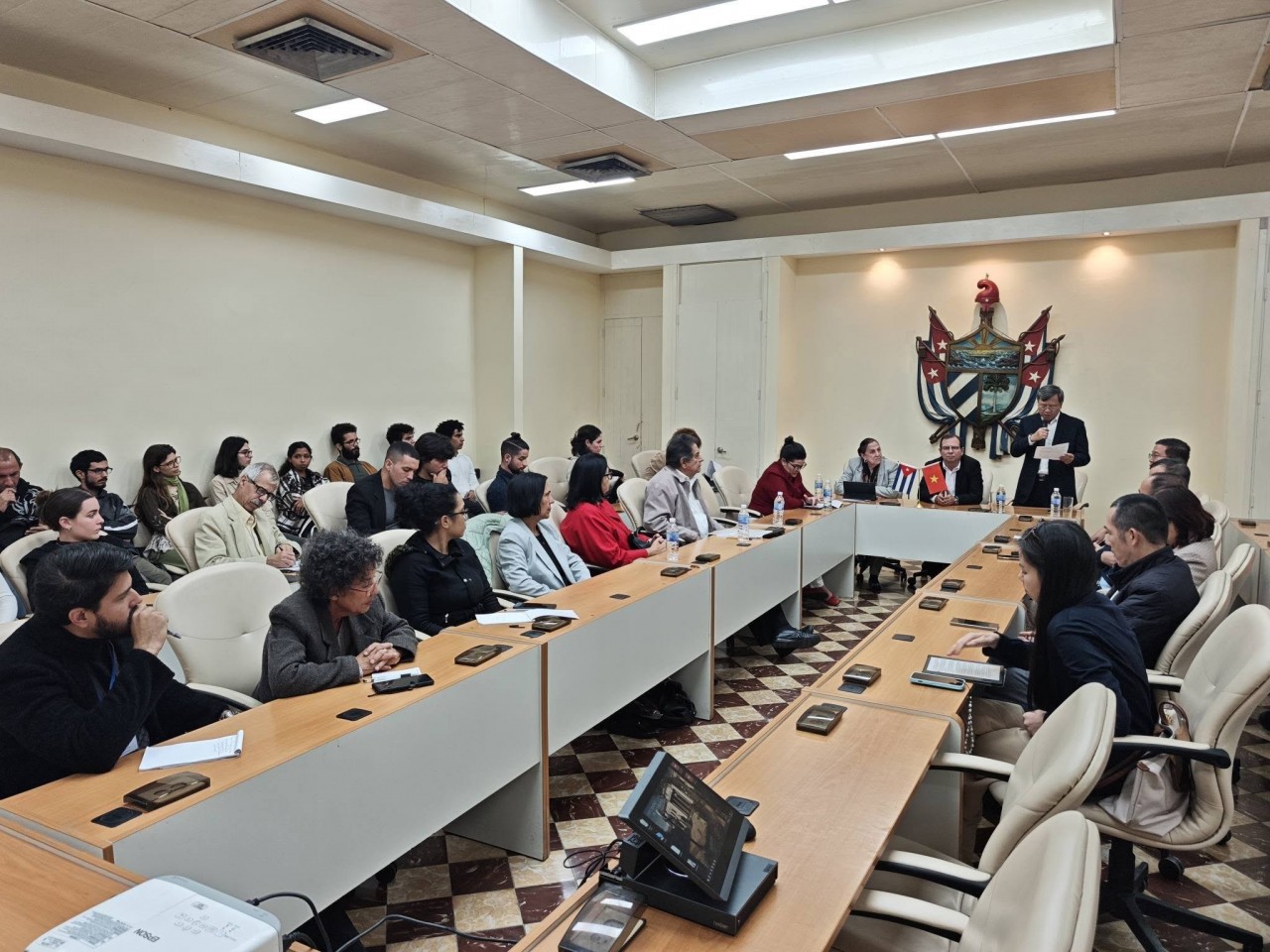 Friendship
Friendship




